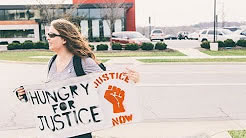Organizational Research Methods: Storytelling in ActionDavid M. Boje Book being prepared for Routledge, due March 2018 To cite this document: Boje, David M. (2018) "Organizational Resarch Methods: Storytelling In Action", (March 15), URL = <https://davidboje.com/ORM_Storytelling_in_Action_Book/index> |
STREAM 7 - Mary Parker Follett's 'relational process ontology'
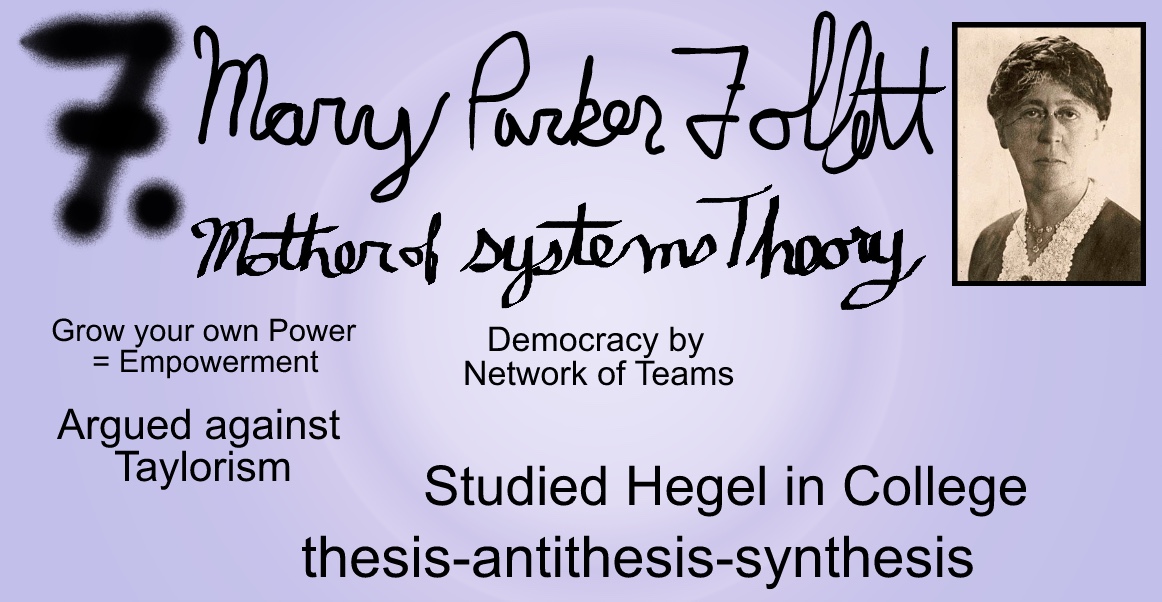
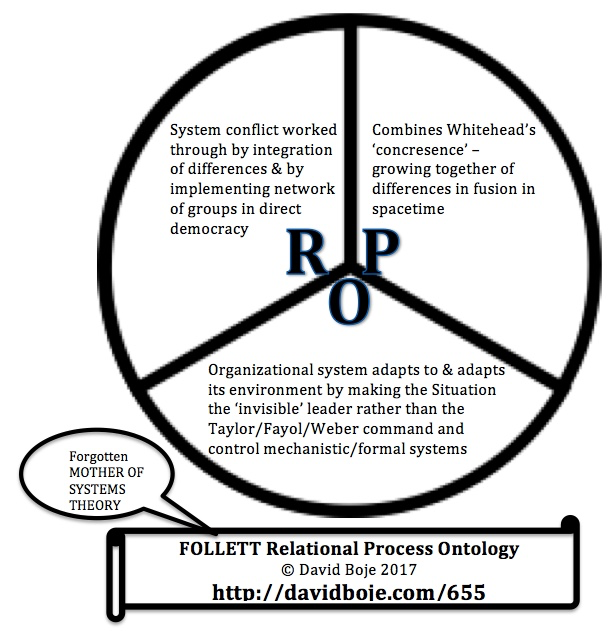
Figure 1: Follett (Forgotten Mother of Systems Theory) here Relational Process Ontology
Third in series of ORGANIZATIONAL RESEARCH METHODS. This one is about Mary Parker Follett, Mother of Systems Theory. Mabel Sanchez and David Boje take you to the BOYCOTT WENDYS movement by Coalition of Immokalee Workers (CIW), a worker-based human rights organization internationally recognized for its achievements in Worker-driven SYSTEMS of MONITORING and EDUCATION in ending HUMAN SLAVERY in the Tomato fields. for more info https://davidboje.com/655 click on Follett in my new book draft. Thank you
You are also missing out on the dialectics of many different 'relational process ontologies', and in particular that of the founding mother of organizational systems theory, Mary Parker Follett. She was all but pushed aside by the Taylorists, and it took till World War II to reinvent open systems theory (negate its past back to James and Follett), and falsely claim it never even existed before Ludwig von Bertalanffy after WWII, and other his-story of male open system theorists.
Recent organizational systems scholarship has begun to rekindle an interest in the study of pragmatism of Follett [which we will study], James [see above], Peirce [in Brier's work we will study], and others. Pitz et al. (in press) "propose a synthesis of pragmatism through the COPE typology (Boje, 2014) that represents our view of the four main tenants of pragmatism: Critical, Ontological, Positivistic, and Epistemic. Further, we utilize COPE by applying it to the question of organizational heterogeneity within institutional theory. In doing so, this manuscript makes important contributions to the study of pragmatism and institutional theory while providing new insights to predict how internal organizational processes are developed and how organizations respond to environmental pressures".
Follett studied Hegel in college, and applied the dialectical approach in how social work, democracy advocacy, and her consulting to business organizations. She understood and implemented her rendition of Hegelian dialectics without using the term dialectic, yet you can see it in her work on ways of unifying differences among participants as a way to settle conflicts, and in her original thinking about what we now call 'empowerment'. Her notion was that people have to grow their own power, to empower themselves, and none can hand you power. She practiced direct democracy, and a network of teams, as an alternative to Taylorist 'scientific management' and what we know now as the closed system, and mechanistic systems approach, that become the mainstream of management and organization systems thinking until WWII.
I rely on Stout and Love (2015) to develop what I call PRO (Process Relational Ontology). Follett's work is an systems ontology alternative to Taylorism, Representationalism, and Positivism. For application of Follett's work to the problems of the public university, see Boje's blog post: https://davidboje.wordpress.com/2017/02/25/how-to-develop-a-university-of-the-future-at-new-mexico-state-university/
Open systems thinking can be found in the early American Pragmatist work (of which Follett, in her later work, was a participant, meeting with Dewey, James, & Peirce; also with Whitehead the process theorist). Its not just people who are agents of systems, the material tells its story, something that William James knew in 1907, 'things tell a story'.
" Things tell a story. Their parts hang together so as to work out a climax. They play into each other's hands expressively. Retrospectively, we can see that altho no definite purpose presided over a chain of events, yet the events fell into a dramatic form, with a start, a middle, and a finish" (William James, 1907 Pragmatism book, online for free).
The cutting edge issue is how to understand 'material-discursive practices as 'dialectical' relations and processes that are ontological systems. I teach ways a complex adaptive organization is a multifractal twisted double spiral.
This next pieceis a 12 step program for Deaddition of organizational system from POWER-OVER so POWER-WITH is unleashed. It came form 3 sessions with the 11 doctoral 2nd year cohort students at Cabrini University in Philly, September 9, 10, 11 2017, and is based on Follett's book 'Dynamic Administration' (1941/1945), a book of her papers and lectures, put gogether after her death December 18th, 1933, the day after my own birthday. In honor of our co-inquiry, I will name it 'Cabrini 12 Step Program' and give thanks.
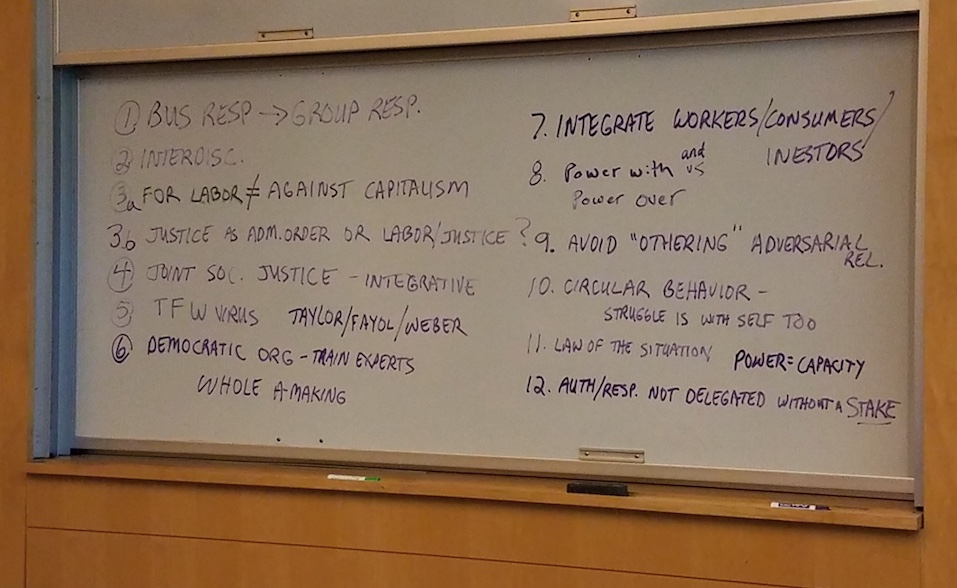
Figure2: 'The Cabrini Deaddiction 12 Step Program' to move from POWER-OVER to POWER-WITH organizational systems
Please read Follett commentary articles on Disks 1 and 2 for your homework, and her book THE NEW STATE for the Hegel dialectic origins of 12 Step Cabrini Method
Follett is being rediscovered (Stout & Staton, 2014). Stout and Staton workout the relational process ontology. She did pioneering work in systems theory in the late 1800's, early 1900s that was subsequently ignored by the wave of Tayloristic Scientific Management (mechanistic systems) and by open systems. Follettian RPO1 has interweaving of social and material aspects in the ‘Law of the Situation.’ Her work begins with revisions to Hegel’s dialectic. Her solution is to harmonize dialectical differences by a network of interacting local groups in the community, and local networking groups working through differences in public and business organizaitons. Since ‘social’ and ‘material’ are treated as interactive, interactive, and interweaving rather than inseparable (or entangled as in RPO3), the Follettian RPO1 fits with Substantialism paradigm (RPO4). The Situation is treated as ‘agential’ and the ‘invisible leader’ of participative decisions. Conflict resolution is by integrative unity. The focus on power is to enact ‘power with’ as an alternative to ‘power over’ in Tayloristic central planning and managerial hierarchy of command and control. Like Follett, Arendt (1958), has a RPO, one that is quite different from Heidegger, and other sorts of ontologies we are reviewing here. (Follett) Follett, Mary Parker. (1924/1930). Creative Experience. Рипол Классик; NY/London: Longmans, Green and Co. on line at http://ww.pqm-online.com/assets/files/lib/books/follett.pdf Follett is the founder of systems thinking in organization studies. She has several amazing books that need to be in your permanent library. Creative Experience is the only one I can find free online.
Mary Parker Follett’s ideas of integrative unity, democratic governance, shared responsibility, and power-with rather than power-over. It is also a way to bargain, to negotiate change by negotiating reward in an integrative manner of conflict resolution.

Figure 3: How Mary Parker Follett key dialectic concepts
Mary Parker Follett, has this Notion of the dialectic, where the common purpose of a group (organization or society) can allow ‘invisible leaders’ (they are not people, but something non-corporeal), allows the kind of power-with, so that group, we (Rosile, Boje, & Inez, 2016) are calling ELT, can obey the situation.
There are a few more Notions that Follett draws from Hegel’s dialectical development approach.
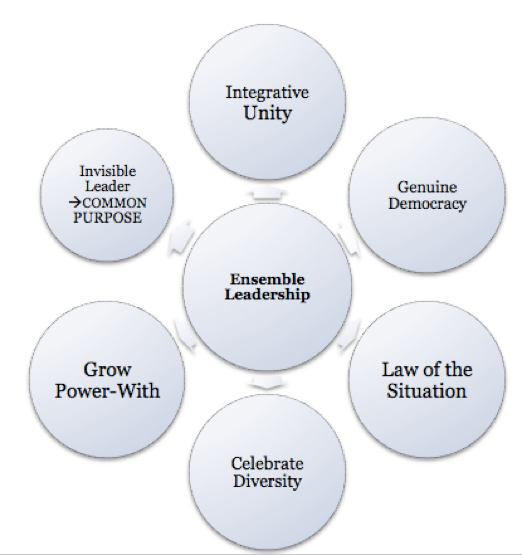
Figure 4 – How ELT relates to Six Key Notions of Follett’s Dialectic
Follett wanted to resolve conflicts by integrative unity, rather than by domination or by forcing ‘compromises.’ Genuine democracy is not majority rule, not that shallow vote sort of democracy, rather its having groups that self-organize, self-manage, and are at the community level, and the backbone of a business, or a university. The Law of the Situation, is as they say in Dragnet ‘Just the Facts’ but it’s a jointly studied Situation, and an agreement by all parties, all sides, to do co-inquiry into the facts of the Situation, including how the Situation is emerging, changing, and moving along. Celebrate diversity, means treating differences and diversity of cultures as an assets, rather than trying to eliminate diversity, integrate the differences, into something creative in what we now call Problem-Based-Learning (in Denmark). Grow your power-with, avoid power-over, and learn that no one can empower you, you have to Self-Empower your own Self by gaining capacity for power. Invisible Leaderà Common Purpose means that the Situation itself is the ‘invisible leader’ and by scientific co-study, joint-projects of inquiry across divides, it is possible to create common purpose, which for me, is the basis and foundation of Ensemble Leadership.
“To me, this comes out in Follett’s appreciation of Hegel’s dialectic. Its not the tired old saw of these-antithesis-synthesis. The point of Hegelian dialectic is there is no synthesis, as Follett puts it, just continuously evolving Situation in a play of differences in the Whole Situation” (See blog post How to Implement Ensemble Leadership Practices at a Public University? And blog post What is Relationship of Ensemble Leadership Theory to Hegel’s and Mary Parker Follett’s Dialectic? for more on this point).
Follett, M. P. (1898). The Speaker of the House of Representatives. Longmans, Green & Co. NY, NY.
Follett, M. P., & Hart, A. B. (1902). The Speaker of the House of Representatives with an Introduction by AB Hart. Longmans, Green, & Company.
Follett, M. P. (1918). The New State: Group organization the solution of popular government. University Park, PN: Penn State Press. NOTE: HEGEL IS MENTIONED 13 TIMES IN THIS BOOK and SYNTHESIS 18 TIMES (please see online version at Google or Amazon and search them out). It is the book she wrote early in her career that has explicit reference to Hegel. After that the dialectic is translated into her own terminology.
Follett, M. P. (1919). Community is a process. The Philosophical Review, 28(6), 576-588.
Follett, M. P. (1924/1930). Creative Experience. Рипол Классик; NY/London: Longmans, Green and Co. on line at http://ww.pqm-online.com/assets/files/lib/books/follett.pdf
Follett, M. P. (1926). The giving of orders. Scientific foundations of business administration, 156-162.
Follett, M. P. (1941). Dynamic Administration: The Collected Papers of Mary Parker Follett, edited by Metcalf, H. C., & Urwick, L. F. NY/London: Harper and Brothers.
Stout and Love. (2015). Integrative Process: Follettian Thinking from Ontology to Administration [Anoka, MN: Process Century Press). I am currently writing a chapter for Stout's most revent book on Follett.
Look carefully at Follett's books, and articles, in relation to the other popular currents of her day:
Chester Barnard’s The Functions of the Executive (1938) "Barnard offers a systems approach to the study of organization, which contains a psychological theory of motivation and behavior, a sociological theory of cooperation and complex inter−dependencies, and an ideology based on a meritocracy" e.g. “organic and evolving social systems” (1945: 178)" 'organization as a 'rational' cooperative system that tended toward equilibrium (stability). see more.
Elton Mayo’s The Human Problems of an Industrial Civilization (1933) entire book online pdf free; The Social Problems of an Industrial Civilization (1945)
Henry Fayol’s Industrial and General Administration (1916/1930). His 14 Principles in pdf
Frederick Taylor’s Scientific Management (1911) and his own Conceptsof the Corporation (1946). Chapter 2 PDF Schmidt story; entire book online free.
CONTRAST ABOVE TEXTS WITH FOLLETT (1918)
“Out of the intermingling, interacting activities of men and women surge up the forces of life: powers are born which we had not dreamed of, ides take shape and grow, forces are generated which act and react on each other. This is the dialectic of life. But this up springing of power from hidden sources is not the latent power of the mass but of the group. It is useless to preach ‘togetherness’ until we have devised ways of making our togetherness fruitful, until we have thought out the methods of a genuine, integrated togetherness. Anything else is indeed ‘blubbering sentimentality,’ as Bismarck defined democracy” (Follett, p. 149).
Follett did not believe in objective ideals, as did Plato and Hegel. Rather she prized democratic deliberation (in teams), working through disparate perspectives, “through dialogue, reach a higher synthesis that would take the place of an ‘objective’ ideal” (p. xllv). Mattson intro to book, p. xllil).
“Individualism and concentrated authority have been struggling for supremacy with us since the beginning of our government. From the beginning of our government we have been seeking the synthesis of the two. That synthesis is to be found in the recognition of organised groups, but not, I believe, by taking away power from the state and giving to the group” (Follett, p. 322).
In Follett’s New State, she says, “The individual is wishing for more wholeness does not ask for a chaotic mass, but for the orderly wholeness which we call unity. The test of our vitality is our power of synthesis, of life synthesis” (p. 66).
“Shall I fight whatever is different from me or find the higher synthesis? The progress of society is measured by its power to unite into a living, generating whole its self-yielding differences” (p. 96).
I rely on Stout and Love (2015) to develop what I call PRO (Process Relational Ontology). Follett's work is an systems ontology alternative to Taylorism, Representationalism, and Positivism. For application of Follett's work to the problems of the public university, see Boje's blog post: https://davidboje.wordpress.com/2017/02/25/how-to-develop-a-university-of-the-future-at-new-mexico-state-university/
Overview: Follett developed power-with as alternative to top-down power-over, developed first theory of empowerment (one has to grow their own power, noone else can hand you paper), developed integrative differences approach to conflict resolution; develop direct democracy in network of small community groups as well as democratic governance system that is an alternative to representational (appointments or elected representation governance). She practiced an alternative to Taylorism, which is only very recently being recognized as a solution to modern day problems of systems thinking. He work is ontological. Follett used to hang out with American Pragmatists such as William James, John Dewey, and Charles Sanders Peirce .In particular Dewey made a paradigm shift to ontology after reading Werner Heisenberg'sUncertainty Principle of quantum mechanics. It is fair to say Follett had a Pragmatist theory and practice of systems. Praxis combines theory and practice in action. Follett contributed an action approach to systems, a praxis.
(Dewey) Dewey, John. (1929). The Quest for Certainty. GIfford Lectures.This is the book that made a paradigm shift in pragmatism by brgining in ontology, after reading Heisenberg's article on Uncertainty Principle in Quantum Mechanics. Boje (2014) builds upon Dewey's reading of Heisenberg uncertainty theory. My explorations of Dewey-Heisenberg ontology, however, puts me at odds with many Baradians. This is explored more deeply in a book edited by David M. Boje and Tonya Wakefield Being Quantum: Ontological Storytelling in the Age of Antenarrative. Note: Dewey's work had an impact on late Follettian Relational Process Ontology, as she attended meetings with a group of American Pragmatists including Dewey, James, and Peirce (among others).
(James) James, William. (1907). Pragmatism. http://www.aibi.ph/politics/DOCS/William%20James%20-%20Pragmatism.pdf This is a neglected book on systems theory, by those errant theorists that try to convince you systems theory began with WWII.
Something practical: What is Process Systems Theory in Modern Day Slavery in USA?
Example: The Coalition of Immokalee Workers (CIW) over the past 23 years has developed a 'process systems theory' that has changed the situation of modern day slavery in Florid and labor conditions in seven states. 23 years ago a system of slavery operated in Immokalee, Florida tomato industry.
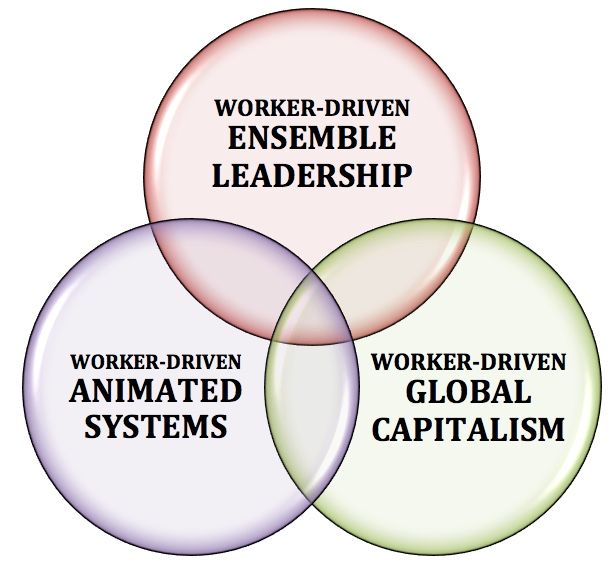
Figure 5: Worker-Driven Animated Systems
Animated Systems are embodied, grounded in participative process, and are relational ontologies.
Boje's Lesson Plan: How Globalization and Material Discursive Practices put Tasteless Tomato on your Table Towards a Worker-Driven Global Capitalism (David M. Boje Keynote June 8, 2017 at Lille France
Process Systems Theory is worker-driven in three ways:
- WORKER-DRIVEN ENSEMBLE LEADERSHIP: Ensemble in French means 'together'. Rosile, Grace Ann; Boje, David M.; Nez, Carma Claw. (2016). “Ensemble Leadership Theory: Collectivist, Relational, and Heterarchical Roots from Indigenous Contexts.” Leadership journal. CLICK HERE for online prepublication draft, or here for PDF from Sage. CIW practice is 'everyone is a leader'. Ensemble leadership builds an alliance of self-managing groups. CIW's worker-driven alliances consists of network of these five groups:
- Coalition of Immokalee Workers(CIW) does worker education, animates workers
- Inter-Faith Alliance for Fair Food (AFF)
- Student/Farmworker Alliance (SFA) organizing colleges and universities
- Fair Food Standards Council (FFSC) doing audits and monitoring sustainable agricultural industry to advance human rights of farm workers, and certify 'fair food' tomato growing and worker practices in Florida, Georgia, North and South Carolina, Virginia, Maryland and New Jersey.
- Fair Food Program (FFP) has a Code of Conduct in an alliance of consumers, 17 growers, and 14 Buyers/brands (Ahold USA, Aramark, Bon Appetit Management CO., Burger King, Chipotle Mexican grill, Compass Group, The Fresh Market, McDonald's, Sodexo, Subway, Trader Joe's, Wal-Mart, Whole Foods Market, and Yum Brands [Taco Bell, KFC, Pizza Hut, & WingStreet worldwide].
- WORKER-DRIVEN ANIMATED SYSTEMS: Animation means creating spaces for people to empower themselves, to light the fire within, to create power-with as an alternative to power-over hierarchical domination that is top-down system (Mary Parker Follett's terms; Stout, M., & Staton, C. M. (2011). The ontology of process philosophy in Follett's administrative theory. Administrative Theory & Praxis, 33(2), 268-292.). Animated systems theory is an alternative to 'representational' abstract systems theory. Rather than abstraction, animated systems theory is focused on embodied practices, animated processes in actions. It begins with conversations that are dialogical, not with checklist interview methods, and definitely not with 1st, 2nd, or 3rd wave Grounded Theory positivism. It is implemented in audit-->reports-->corrective action plan (See FFSC above).
- Boje, D. M. (2016) SLIDES SEAM’s ‘Storytelling Dialectical Method’ and the Failure of Appreciative Inquiry as a Scientific Method of Organizational Development and Change June 8 ODC Lyon Presentation Here is the paper for this event
- Key to Animated Systems is this CIW formula:

- WORKER-DRIVEN GLOBAL CAPITALISM: For centuries slavery has been the outcome of 'managerialist' global capitalism. Management practices began with slavery, and has continued into modern times, especially in agriculture. Using worker education, worker-driven alliances, system of market-driven model of accountability in alliance of consumers, brands, growers, and workers creates revolutionary changes in global socioeconomic practices of global capitalism that are ending slavery practices and promoting Fair Food Program practices. See Kevin Bale's work on 'old' and 'new' slavery in the world. Old slavery required a contract and was very extensive. New slavery has no contract, when you are done with the slaves, you dispose of them.
Worker and Consumer education to raise 'Consciousness' + 'Commitment' to move from bystander spectator role to intervention in once-occurrent event-ness of Being-in-the-world together = 'Change' in the system of slavery.
If we look at kinds of 'Relational Process Ontologies' we can apply to Modern-day Slavery in USA, there are several situations to consider:
- Farm A - gets its farmworkers from across the New Mexico border, in Texas, pays a crew boss, and the crew boss pays the farmworkers less than minimum wage of the state (or less than the going piece rate). This is situation in New Mexico.
- Farm B - gets its farmworkers using a special Visa that allows immigrants only to work on that one farm or not at all. This is situation in many states.
- Farm C - uses a Coyote to smuggle immigrant workers across boarder from Mexico, Guatemala, and other countries, promising them jobs, many of the women are diverted and sold into sex labor, and most males are sold for work on agricultural farms, etc. The crew boss contracts with land owner to provide labor force, under the most miserable working and slavery conditions, including workers in the field while concoctions of dangerous (and some deadly) pesticides and herbicides are sprayed (resulting in birth defects, cancer, and so on). This was situation in Florida before CIW.
- Farm D - uses a local network, such as someone who assembles available local farmworkers to go to a particular farm to plant and or harvest. This is current situation in New Mexico.
- Farm E - uses Coalition of Immokalee Workers (CIW), contracting directly, and uses Fair Food Program (FFP) code of conduct in alliance of 17 growers and 14 brands to enact monitoring in worker-driven program of corporate social responsibility administered by the Fair Food Standards Council that processed and resolved 1,700 complaints, some in favor of workers, others in favor of growers. Farmworkers have a clock in in and clock out system to track hours (some crops also use coin-tokens per basket; workers paid bonuses). This relational process system is in seven eastern states.
- Fair Food Standards Council Annual Report 2015
-

The Florida Modern-Day Slavery Museum
-
-
2010 Florida Modern-Day Slavery Museum
The Florida Modern-Day Slavery Museum consists of a cargo truck outfitted as a replica of the truck involved in a recent slavery ...Estabrook, Barry. (2011). Tomatoland How Modern Industrial Agriculture Destroyed Our Most Alluring Fruit. Kansas City, Sydney, London: Andrews McMeel Publishing
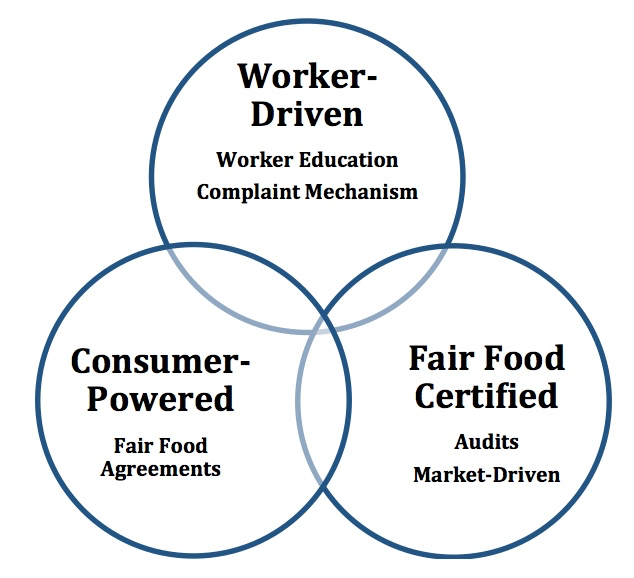
Figure 6: CIW Systems Model
What is the Process System in New Mexico Agriculture?
UNM study shows Mexican immigrant workers being ripped off
Uncovered: New Mexico's Farm Workers
"Worldwide, human trafficking is a $150 billion a year industry. It's a problem in New Mexico, where criminals are preying on some of our most vulnerable people.
While many believe this is only an international issue, New Mexico is actually one of the top destinations for victims and traffickers. Human trafficking is akin to modern day slavery. It's a brutal crime that has, in the past, taken the back seat when it comes to investigations and prosecutions. A human trafficking task force was officially established in 2016." 118 cases in 2016 reported in New Mexico.
“It's unfathomable to think that we would have slavery in the modern era but I’m here to say that it is going on because it is such a profitable business,” said New Mexico Attorney General Hector Balderas." (source).
New Mexico Farm Workers Forced To Work Dangerous Jobs For Little Pay
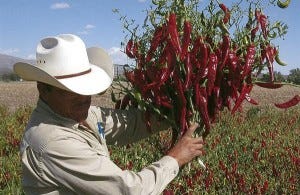
"An overwhelming majority of New Mexico farm and dairy workers have been underpaid and mistreated, according to a New Mexico Center on Law and Poverty (NMCLP) study released Monday. Over 88 percent of farm and dairy workers were subject to wage theft, poor working conditions, and forced to work overtime without lunch breaks." (source).
References for Further Study
Bathurst, R., & Monin, N. (2010). Shaping leadership for today: Mary Parker Follett’s aesthetic. Leadership, 6(2): 115-131. https://www.researchgate.net/profile/Ralph_Bathurst/publication/247765480_Shaping_Leadership_for_Today_Mary_Parker_Follett’s_Aesthetic/links/541224d70cf2788c4b355450.pdf
Boje, D. M., & Rosile, G. A. (2001). Where’s the power in empowerment? Answers from Follett and Clegg. The Journal of Applied Behavioral Science, 37(1), 90-117.
Eylon, D. (1998). Understanding empowerment and resolving its paradox: Lessons from Mary Parker Follett. Journal of Management History, 4(1), 16-28. https://sites.fas.harvard.edu/~soc186/AssignedReadings/Eylon-Follett.pdf
Fayol, H. (1949). General and Industrial Management Translated by J.A. Coubrough, London: Sir Isaac Pitman & Sons, from French 1916.
Feldheim, Mary Ann. (2004). MARY PARKER FOLLETT LOST AND FOUND – AGAIN, AND AGAIN, AND AGAIN . INTERNATIONAL JOURNAL OF ORGANIZATION THEORY AND BEHAVIOR, 6(4), 341-362 FALL. http://pracademics.com/attachments/article/161/SympAr2%20Feldheim.pdf
Follett, M. P. (1898). The Speaker of the House of Representatives. Longmans, Green & Co. NY, NY.
Follett, M. P., & Hart, A. B. (1902). The Speaker of the House of Representatives with an Introduction by AB Hart. Longmans, Green, & Company.
Follett, M. P. (1918). The New State: Group organization the solution of popular government. University Park, PN: Penn State Press.
Follett, M. P. (1919). Community is a process. The Philosophical Review, 28(6), 576-588.
Follett, M. P. (1924/1930). Creative Experience. Рипол Классик; NY/London: Longmans, Green and Co. on line at http://ww.pqm-online.com/assets/files/lib/books/follett.pdf
Follett, M. P. (1926). The giving of orders. Scientific foundations of business administration, 156-162.
Follett, M. P. (1941). Dynamic Administration: The Collected Papers of mary Parker Follett, edited by Metcalf, H. C., & Urwick, L. F. NY/London: Harper and Brothers.
Follett, M.P. (1949.1987). Freedom and Co-ordination. Lectures in Business Organization. Edited, with an Introduction by L. Urwick. NY/London: Garland Publishing.
Kaag, J. (2008). Women and forgotten movements in American philosophy: the work of Ella Lyman Cabot and Mary Parker Follett. Transactions of the Charles S. Peirce Society: A Quarterly Journal in American Philosophy, 44(1), 134-157. http://citeseerx.ist.psu.edu/viewdoc/download?doi=10.1.1.825.5437&rep=rep1&type=pdf
Melé, D. (2007). Ethics in management: Exploring the contribution of Mary Parker Follett. International Journal of Public Administration, 30(4), 405-424. http://www.iese.edu/research/pdfs/DI-0618-E.pdf
Monin, N., & Bathurst, R. (2008). Mary Follett on the leadership of ‘Everyman’. Ephemera-theory & politics in organization, 8(4), 447-46. http://www.ephemerajournal.org/sites/default/files/pdfs/8-4ephemera-nov08.pdf#page=97
Morton, N. O. R., & Lindquist, S. A. (1997). Revealing the feminist in Mary Parker Follett. Administration & Society, 29(3), 348-371.
O’Connor, Ellen S. (2000). Integrating Follett: History, philosophy and management. Journal of Management History, Vol. 6 (4): 167-190. http://libezp.nmsu.edu:2797/doi/full/10.1108/13552520010348344
Plant, R. (2010). The neo-liberal state. Oxford University Press on Demand.
Salimath, M. S., & Lemak, D. J. (2004). Mary P. Follett: translating philosophy into a paradigm of lifelong learning. Management Decision, 42(10), 1284-1296.
Slaughter, S., & Leslie, L. L. (1997). Academic capitalism: Politics, policies, and the entrepreneurial university. The Johns Hopkins University Press, 2715 North Charles Street, Baltimore, MD 21218-4319.
Taylor, F. W. (1911/ 1998). The Principles of Scientific Management. NY: Dover, Mineola.
Verstegen Ryan, L., & Rutherford, M. A. (2000). Mary Parker Follett: individualist or collectivist? Or both?. Journal of management history, 6(5), 207-223.
Weber, M. (1909/2009). The theory of social and economic organization. Simon and Schuster. In German 1909.
Whitney Gibson, J., Chen, W., Henry, E., Humphreys, J., & Lian, Y. (2013). Examining the work of Mary Parker Follett through the lens of critical biography. Journal of management history, 19(4), 441-458.
MODERN DAY SLAVERY RESOURCES
Why businesses fail to detect modern slavery at workAndrew Crane, University of Bath; Genevieve LeBaron, University of Sheffield Supply chains are much clearer than they used to be but the same can't be said about labour. |
||
|
||
|
||
|
||
|
||
|
||
|
